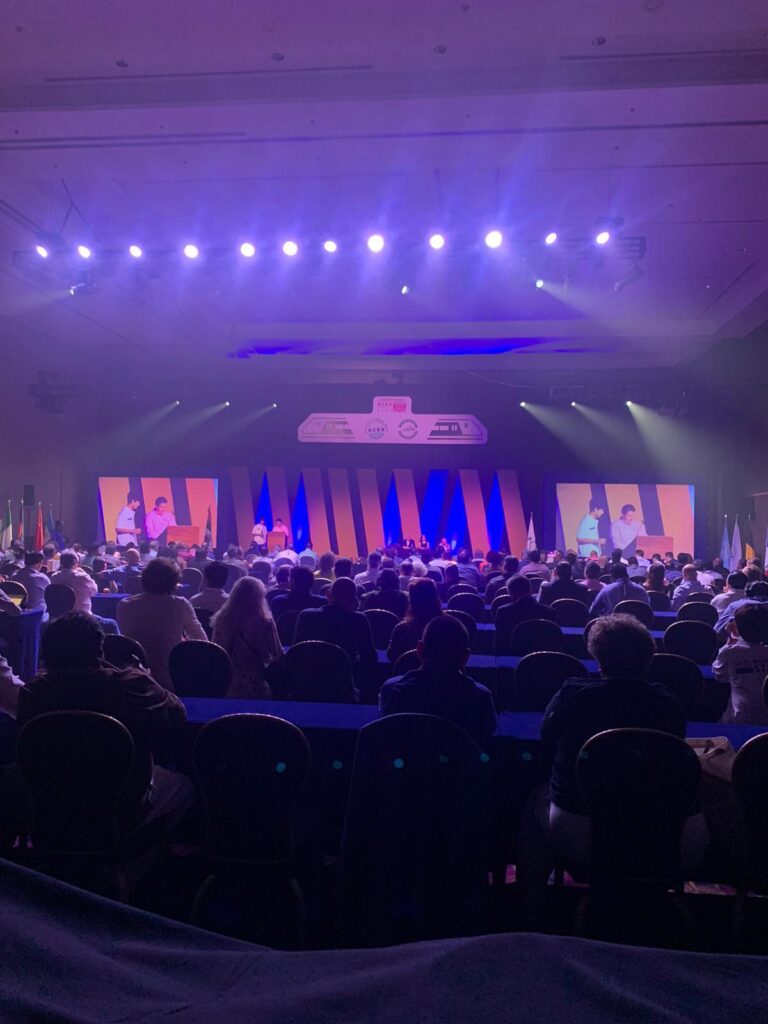WUWM annual conference 2023 held in Mexico
Coordinated by the Mexican federation of wholesale markets CONACCA and the secretariat of the World Union of Wholesale Markets (WUWM), the conference debated the challenges and opportunities of feeding 7 billion inhabitants living in urban cities the more sustainable and efficient ways. “With 75% of the world’s population living in urban centres by 2050, our organisation focuses on improving the distribution of fresh food in an inclusive and sustainable way by developing modern supply infrastructure,” said WUWM chairman Stephane Layani.
Urgency and responsability
Arturo Salvador Fernandez Mendez, chairman of CONACCA and WUWM Americas director, opened the congress reminding attendees of the important themes that underscore the urgency of modernising the food sector and understanding the world in which the consumers are living today and will live tomorrow.
“Which world? It’s a complex world in which we are faced with a number of paradoxes: a growing population that needs to be fed, external shocks that affect both agricultural production and trade in goods (sanitary crises, conflicts, climate change), an increase in food insecurity and food waste” said Arturo Salvador. He also reminded consumers and users also want access to the most sustainable food possible, including the entire food chain, from production to storage and transport. It is indeed a challenge for the wholesalers and retailers to respond to them.
Conflicts now represent the major risk to food
This conference took place at a pivotal moment for the wholesale sector, as conflicts unfold across the world, affecting every continent. The 2023 Global Report on Food Crises, jointly released by the World Food Programme (WFP) and FAO, confirms that conflicts are the primary driver of severe food shortages worldwide. In 2022, conflicts impacted 258 million people, making up 44% of those facing acute food insecurity. These conflicts disrupt both agricultural and food systems, resulting in the collapse of livelihoods and the displacement of people from their homes. In addition, this year has been marked by extreme weather events, which are becoming more frequent and severe due to climate change. As an example, in Mexico, the 2023 El Niño episode has caused severe droughts and floods, which destroyed crops and agricultural infrastructure, leading to a significant loss in food production. Just the week of the conference October 25th Hurricane Otis made a violent impact on the Acapulco region, causing extensive damage. In Greece, Spain, Ethiopia, Kenya and Somalia, drought has resulted in a decrease in agricultural yields and increases in food prices.
Domino effect exacerbating global food insecurity
Wholesale and retail markets are at the heart of the food system, at the interface between those who produce, those who market and those who consume. They have a major role to play both in supporting and structuring agricultural production, and in modernizing to meet the expectations of their users. The customer could be either the wholesaler or the final consumer, but they are entirely interconnected. Neither operates without the other.
Consumers increasingly prioritise their health and overall well-being. They show a growing sensitivity towards environmental matters and express a desire for food items that are manufactured sustainably, with a keen regard for the environment and its natural resources. Additionally, consumers seek comprehensive and easily accessible information regarding the food they consume, encompassing details about its ingredients, source, and production methods. Wholesalers need to provide healthy, balanced, sustainable, and transparent food options. This translates to offering organic, fair-trade, local, and diverse products. Wholesale market need also to meet the expectations of wholesalers, regarding sustainability, decarbonation, infrastructures, services.
Strategic collaborations to achieve sustainability goals
That’s why the WUWM is there to act as a strategic and collaborative platform, proposing solutions for the food sector and sharing experience and best practices. Wholesale market are indeed the ones who ensure the daily delivery of fresh food to billions of citizens and customers around the world. “To achieve these objectives, we must modernize: logistics between the farmers and the wholesale market, cold-chain operations, packaging, enhance circularity, improve processes, improve the link between the wholesale market and the retail market, and upgrade infrastructure while drastically reducing food waste” said Arturo Salvador. Food security has never been more precarious across all continents than it is today.
“I sincerely hope that this conference will mark a turning point for our sector. I trust that we will succeed in garnering clear engagement from all stakeholders, propelling us toward swift modernisation that can provide stability even in countries facing conflicts, economic crises, and climatic events,” said Fernandez Mendez during the opening ceremony.




